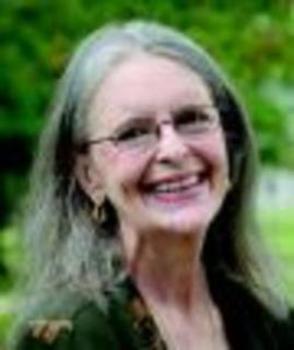Communication access realtime translation (cart) is provided in order to facilitate communication accessibility and may not be totally verbatim. The consumer should check with the moderator for any clarifications of the material.
This text-based course is a written transcript of the seminar, “Coping with the Impact of Aphasia: What do significant others need and how can SLPs help?” presented by Barbara Shadden on August 24, 2011.
>> Amy Natho: I would like to welcome you to the SpeechPathology.com e-learning Expert Seminar entitled, “Coping with the Impact of Aphasia: What Do Significant Others Need and How can SLPs help? I am Amy Natho and I'll be your moderator for this online course. At this time it is a great pleasure and an honor to introduce Barbara Shadden today. Barbara Shadden is a University Professor Emeritus in Communication Disorders, and Co-Director of the Office for Studies on Aging at the University of Arkansas. She joined the faculty at the U of A in 1979. Previously, she served as Clinical Services Coordinator at United Cerebral Palsy in Bridgeport, CT, Co-Coordinator of Neuropathology Services, University of Tennessee, and speech-language consultant to two hospitals in Fayetteville, AR. She is ANCDS Board Certified in Adult Neurologic Communication Disorders. Dr. Shadden received her Ph.D. from the University of Tennessee. She is an ASHA Fellow, has been active in ASHA Gerontology SID and accreditation initiatives, as well as past president of ArkSHA and the CAPCSD. Dr Shadden has published and presented extensively on topics in aging, neurogenics, discourse, and augmentative communication, including five textbooks and editorship of five journal issues. Most recent research and service interests focus on the health of seniors, on caregiver needs and issues, and on the impact of neurogenic communication disorders on sense of self or identity. Welcome,Barbara. Thank you so much for being here today.
>> Barbara: The handouts you have are about various things that we will talk about but also things that we don't have time for. For those, I will point them out as we go along. The handout from the slides has everything except for a few dividers that you didn't need and a few copyrighted pieces that I'll point out when we get to them.
I found it difficult to focus my talk today, partly because in addition to having worked with stroke survivors and their families for about 35 years, about 14 years ago I became a significant other to a stroke survivor - someone with aphasia. As a result, I think I have a rather unique perspective on the situation, and I'm going to be sharing with you my academic, research, clinical, and personal experiences a bit as we talk today.
I think for most of us, when we work with someone with aphasia, we give our time and attention almost exclusively to the person with aphasia. That is who we're there for. We deal with the families and the significant others in a variety of ways - as partners to that person with aphasia, and as support to that person. They may give us information about the person with aphasia and they may help us in treatment. We know that it has a significant impact. We know they're caregivers as well, but we don't pay as much attention to that role, so we're going to talk about the implications of some of that today.
That is particularly important, because it is my feeling that in today's healthcare environment, the challenges that we're facing are actually putting even more of the burden on the caregiver or on the significant other. As we have less treatment provided earlier on, there are fewer opportunities to do some of the extra kinds of interventions that we did before. And as we move into looking at the social approach to aphasia, we look at life participation. The folks who have been with the person with aphasia the longest are their significant others. I think that we have to be really attentive to the needs of those folks and we have to find a way to involve them and assist them perhaps a bit more than we have before.
One of my favorite people in terms of research is LeDorze, and she had a quote from one of her spouses that said, ‘The spouse…is the most forgotten person in the whole story.’ I think that is true.
There are three ways that we can look at the significant others. They can be our partners in the whole therapy process. They can be caregivers. Or we can think of them as people. These are people who are dealing with their own personal loss and with the threat of loss of the sense of who they are. What are they about? Who are they in relationship to this person, because communication plays such a huge role there? Today we'll take those perspectives and look at them and say what we can do a little differently in order to address some of those more effectively.

